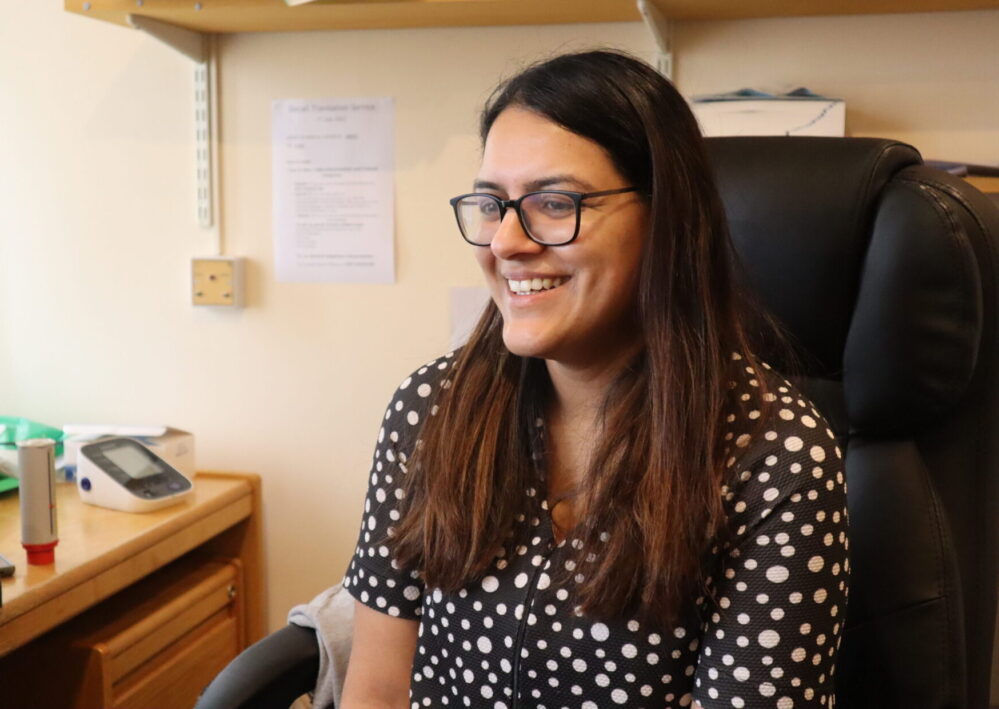Clinical Pharmacy
Leading Healthier Lives
Clinical Pharmacy
Clinical Pharmacists are highly qualified health professionals who support and educate patients about how medicines work and their side effects. By providing personalised medication management, we strive to improve patient outcomes and overall wellbeing.

The role of a Clinical Pharmacist
Clinical Pharmacists are involved in anything relating to medication, and some examples of their roles in the GP practice include:
- Answer questions relating to medication from patients
- Answer questions relating to medication from other members of the practice teams
- Structured medication reviews, in-depth reviews on how patients can manage their medication and keep patients safe from any harm
- Review safety alerts and national guidance relating to medicines
- Carry out review of long-term conditions to ensure patients are being managed appropriately
Where can I see a Clinical Pharmacist?
Grand Union Primary Care Network
- Abington Medical Centre
- Abington Park Surgery
- King Edward Road Surgery
- Leicester Terrace Health Centre
- Greenview Surgery
How to book a patient appointment with a Clinical Pharmacist?
Clinical Pharmacist have appointments allocated within practices and can be booked like any other appointment.
Case Study
Pharmacists routinely undertake Structured Medication Reviews at care home, this case study is regarding a care home that primarily looked after patients with complex behavioural concerns.
One of these patients was a 55-year-old patient with behavioural issues stemming from long term substance abuse. The patient had been on high dose antipsychotics for several years including Risperidone at a dose of 500mcg in morning, 500mcg at lunchtime, and 1mg at night, as well as lorazepam to be used when required.
Structured medication reviews for vulnerable people include educating carers about appropriate behavioural management of residents as part of STOMP (stopping over medication of people with learning disability, autism, or both). I discussed the role of antipsychotics and overmedicating people with the home manager and senior carer.
While getting more information from the carers, it appeared that the patient had exhibited no significant aggressive behaviour in the last few months, and she was not engaging a lot with the staff. The pharmacist discussed the possibility that she was overmedicated, and whether slowly reducing the dose of risperidone would be a suitable intervention. It was agreed that a slow dose reduction would be initiated on a four weekly basis while monitoring her behaviour. The time intervals were chosen to correspond to the homes four weekly medication cycle and reduce risk of dosing errors with interim changes.
The initial dose reduced was the evening dose as she had no problems with her sleep and did not need any increased sedation. The pharmacist reduced the evening dose by 250mcg to 750mcg. Carers were aware of when to seek support if they were concerned about any behaviour changes, and a plan was agreed for me to review monthly.
On follow up 1 month later, the dose reduction had not increased any verbal or physical aggression, nor was there any noticeable change in sleep patterns. It was agreed to reduce the evening dose further again by 250mcg to 500mcg. The patient has been on this dose for a few days and there has still been no increase in challenging behaviours, so the plan is to continue to decrease the risperidone to the lowest dose necessary.